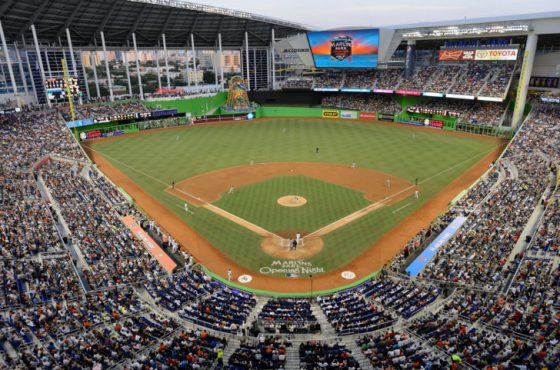What Is Next for US Sports Betting ( Part 2 )
What is the next step for US sports betting after or if it becomes legal. The legal issue is not the problem but the format and structure of a new legal platform will be a fight over who gets what and the power struggle most likely to occur. Since the start of legislative sessions across the U.S., we have seen an avalanche of state bills creating rules for legal sports betting, pending a change in the federal law known as PASPA that effectively bans sports betting outside Nevada. But a somewhat surprising development has been the qualified support that the NBA and MLB have offered for New York sports betting, Illinois sports betting, Iowa sports betting and beyond.
League officials and lobbyists support legal sports betting, but only bills that would grant them a number of beneficial clauses, most notably a 1% “integrity fee” on all sports wagers, as well as rights to control betting operator data and a right to limit which wagers a sportsbook can offer.
In support of these measures, leagues and their lobbyists have testified to their necessity, wined and dined lawmakers, and circulated a one-page memo. They have drafted an eight-page “Model Sports Wagering Act” for “gaming states,” sports betting legislation that is on the table. This explains why we have seen almost identical language cropping up in bills across the U.S. A decision in Murphy v NCAA, the Supreme Court Sports Betting case, will come as soon as March 5, as more officials will oblige the leagues.
The model legal sports betting playbook from the NBA and MLB for potential gaming states is a power control move by the leagues which will hurt efforts for any court legislation. Focusing on the major clauses, not the definitions or other reasonable suggested elements, let’s cross-reference this language with HB 1325 in Indiana, the recently-proposed SB 3432 “Sports Wagering Act” in Illinois, and a Senate draft bill in Missouri that does not yet have a sponsor. California also proposed legislation last year that will be updated.
Indiana
In HB 1325, much of the of the Model Act’s Section 5 (integrity requirements) and almost the entirety of Section 6 (record keeping; information sharing; fees”) appears. These clauses appear in Indiana’s Chapter 8, Sec 3., and Chapter 9, Secs. 1, 2, 3 and 4. Those clauses grant leagues:
(a) The right to “restrict or limit wagering on a sporting event” after providing notice
(b) The right to impose “restrictions on the sources of data and associated video upon which an operator may rely in paying wagers”
(c) The right to restrict the types of bets that may be offered
(d) The right to collect real-time information on operators’ wagers
(e) The 1% “integrity fee” remitted at least once per quarter.
All these rights and demands will clash with sportsbook operators and could further delay any type of operational platform being proposed by state legislator. Sponsored state legalized sports betting could be doomed before it starts from a red tape environment that most people involved will fail to negotiate.
Illinois
The Illinois sports betting bill SB 3432, Section 35 (“record keeping, information sharing),” is nearly a carbon copy of the Model Act Section 6. The leagues are granted:
(a) The right to collect real-time information on operators’ wagers
(b) The 1% “integrity fee” remitted at least once per quarter.
In Section 30 (“integrity requirements”), we see more identical language from Section 5 of the Model Act, granting leagues.
(a) The right to “restrict or limit wagering on a sporting event” after providing notice
(b) The right to impose “restrictions on the sources of data and associated video upon which an operator may rely in paying wagers
(c) The right to restrict the types of bets that may be offered
More restrictions to undermine the business of establishing a legal sports betting opportunity for the general public.
Kansas and Missouri
HB 2752 in Kansas introduced this week and a Missouri draft bill not yet introduced both contain the same Model Act wording as the other states introduced earlier.
Other states have balked at these terms, limitations and ‘integrity fee’
The West Virginia sports betting bill (SB 415), the Iowa sports betting bill (HSB 592) and the Pennsylvania sports betting bills are the main examples. In their final forms, should they advance and ultimately pass (Pennsylvania has passed its bill but it contains prohibitive taxation and fees; SB 415 just passed the West Virginia senate), the bills might contain some league-approved information sharing clauses, but not the other Model Act provisions.
In New York, Connecticut, Massachusetts, Rhode Island, Michigan, the contents of the legislation is being processed. Those states are holding hearings on sports betting or have passed legislation telling gaming boards to create rules and regulations. There are lobbyists registered in those states, and it seems likely that some have seen the Model Act, but not all as noted below.
“We were unaware of this model legislation,” Mark Sternman, media relations representative for Massachusetts state senator Eileen Donoghue, sponsor for an act to regulate online sports betting said via e-mail Tuesday. “There’s no [model] sports betting bill about which I know.”
NBA Adam Silver’s recent remarks cloud the horizon
Through lobbying efforts, the NBA and MLB have offered lame justification for the “integrity fee” and other components of the Model Act. But mainly the arguments have pointed to the leagues’ purported need to institute greater and costly integrity monitoring, or oversight of wagers to detect any malfeasance or irregularities.
But running through the public remarks and one-sheets is the subtext that it’s really an intellectual property tax. The idea that without their games, there would be no sports betting. NBA commissioner Adam Silver just came out and said it this weekend. This analysis is an attempt to create new revenue streams and subtract money from state budgets. Vegas sportsbook operators are probably making jokes about Silver being a good con man. The “fee” would be easily rejected by all Vegas operators. They know their margins are slim enough not to be held captive by these extra costs that will hinder profits.
“This notion that as the intellectual property creators that we should receive a 1% fee seems very fair to me” Silver said of levying a fee on potential operators. “Call it integrity fee, call it a royalty to the league.”
In ongoing league lobbying efforts at hearings and in conversations, will they begin to call it what it is — an extortion fee going to a private entity, the NBA. In any case, many state lawmakers already know, this is the cost of doing business. How will states benefit with added expense and will their grand financial promises fall way short of expectation —- just like Atlantic City!
Las Vegas will always be the leader
I do not think Las Vegas book operators and casinos are worried about a favorable Supreme Court decision where other states might take a small piece of their action. Vegas knows how to promote and market their betting appeal and just visiting some of their major sportsbooks is a testament on how to do things right and what sports betting should be for all their customers.
Hopefully, any legalized betting in the US will develop over time without the politicians getting to involved with their greedy hands.
bfraser1011@gmail.com





